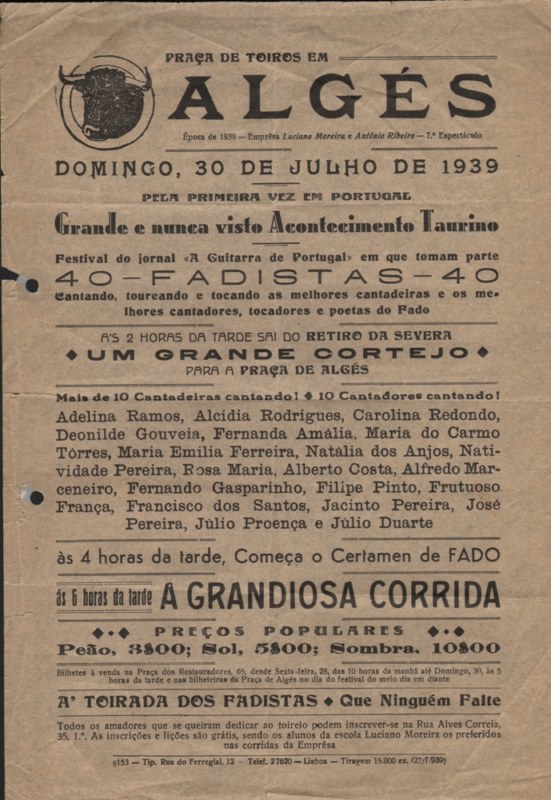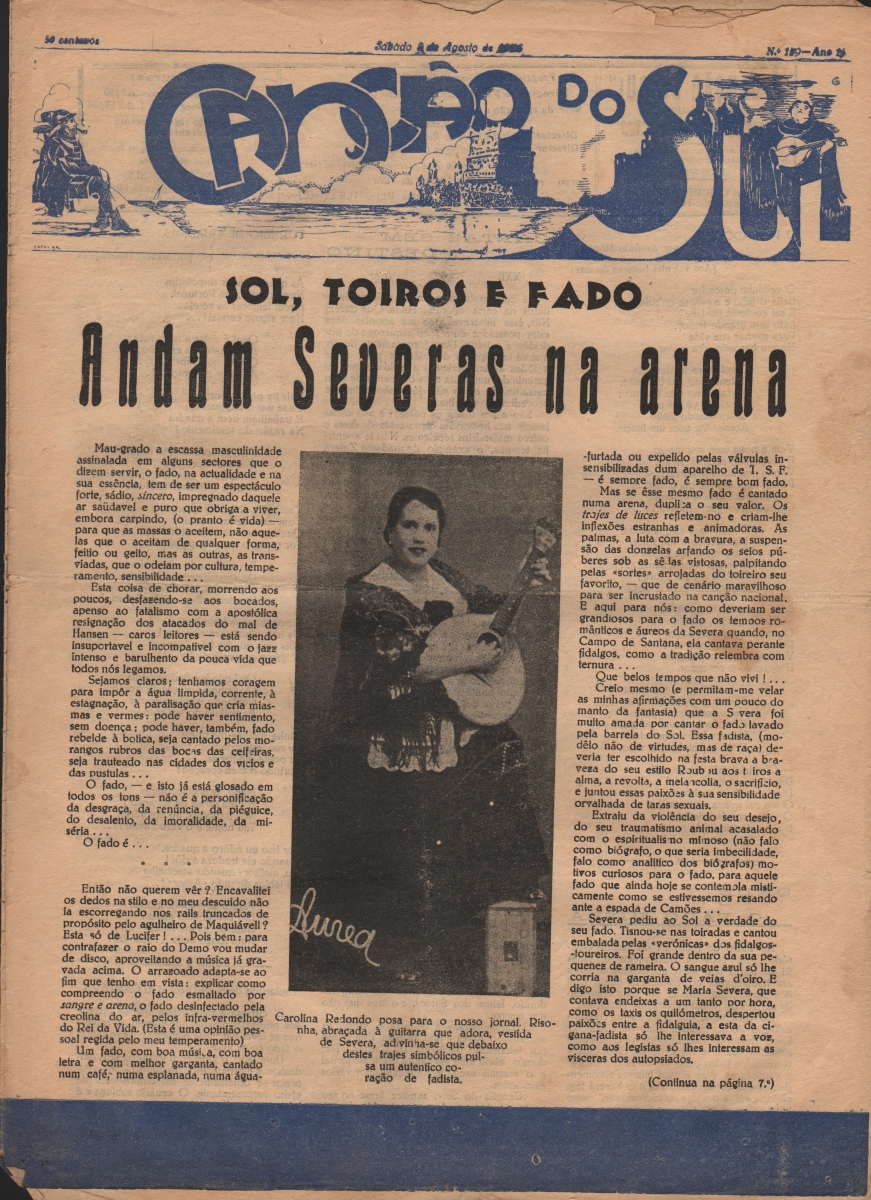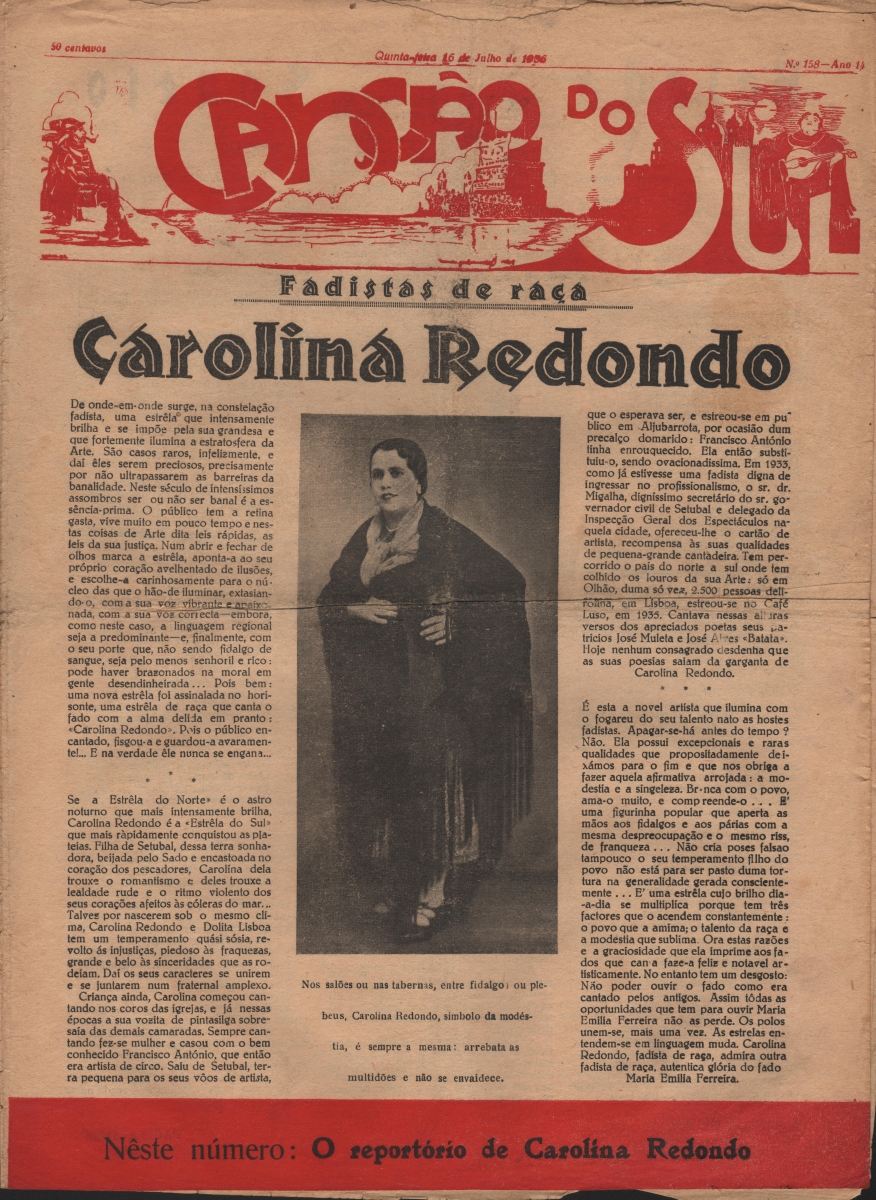Know more:
Carolina Redondo
(N. 4 April, 1909 - M. 13 December, 1982)Carolina Redondo was born in Setúbal and began singing as a child, in the church choir. She married the singer Francisco António Azevedo and by that time they left their homeland. In 1931, at Aljubarrota, due to a illness of her husband, she made her debut as an amateur with a tremendous success (see “Canção do Sul”, July 16, 1936), then she acted around Portugal and also Spain.
Two years later, in 1933, while performing at the Teatro Recreio do Povo, in Setúbal, Dr. Mealha, the delegate of the General inspection of Shows, offered her the professional singer card. Even so, her professional debut as a singer happened only in 1935, at the distinct Café Luso, where the public "forced" her to sing seven times in a row (see Victor Machado (1937): 79).
She sang at numerous charitable festivities, at the Royal Cine, at the Voz do Operário ballroom, at the Odeon Cinema, at the Café Ginásio anda t the most emblematic fado houses, like the Retiro da Severa, Solar da Alegria, the Cafés Mondego and Luso and later at the Márcia Condessa.
She sang at numerous charity parties, at the Royal Cine, at the "Voz do Operário" party room, at the Cinema Odeon, at the Café Ginásio and at the most emblematic fado houses of her time such as "Retiro da Severa", "Solar da Alegria", "Café Mondego" and "Luso" and, later, "Márcia Condessa".
Carolina Redondo would early become a widow but continued to sing, including at the performances of fado and varieties organized by the businessman Júlio Gonçalves Giblote. She would marry the son of businessman in the 40s, and had three children. From her first marriage Carolina Redondo already had a son, João Azevedo that, too, would follow an artistic career.
Carolina Redondo became known as the "Cantadeira de Setúbal" (the Setúbal singer) and had the distinction of emphasize the rr when she spoke, which gave her a very personal style of interpretation and resulted in the singing of some of her most popular fado repertoires, such as “A Minha Pronúncia” (My pronunciation), written by the poet José Clemente Pereira and, later, recorded by Argentina Santos, and the poem by Adriano dos Reis "Sem Erres" (No R’s).
Source:
“Canção do Sul”, July 16, 1936
“Canção do Sul”, August 1, 1936
“Canção do Sul”, October 16, 1936
Machado, Vítor (1937), “Ídolos do Fado”, Tipografia Machado
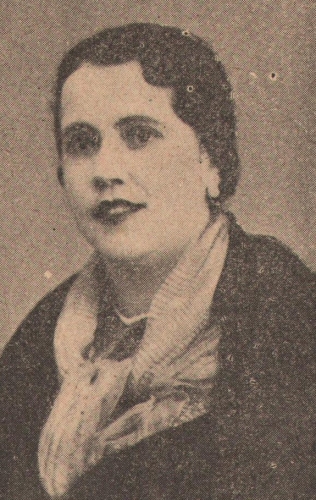
Carolina Redondo, Livro "Idolos do fado", 1937
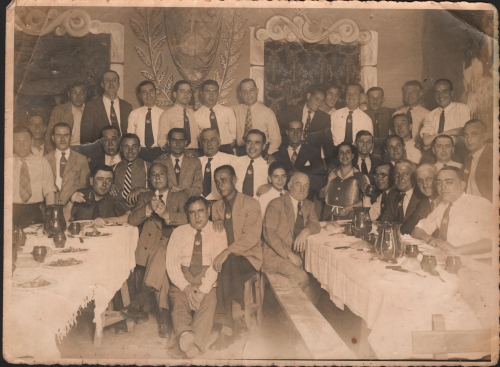
Carolina Redondo, década de 40
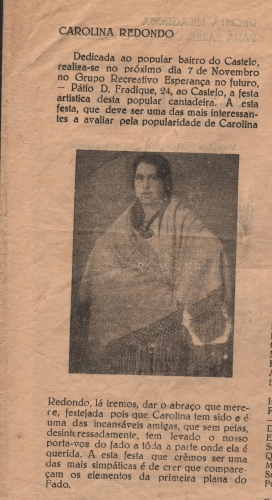
Artigo de jornal | Newspaper article, Canção do Sul, 16 de Outubro | October 16, p. 3
